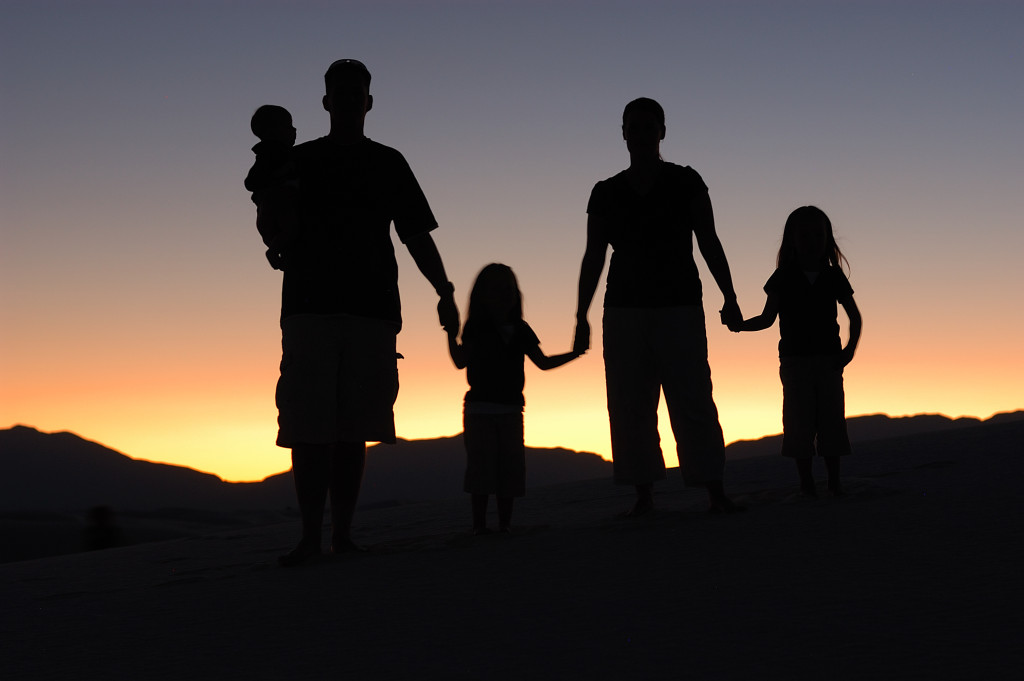
Contributor: Staff at Timberline Knolls Residential Treatment Center
It’s common to think of a person who is struggling with addiction as someone who is waging an individual battle against this disease.
We see this image time and again in popular culture, with one person hitting rock bottom and then beginning the difficult climb toward recovery as they enter treatment.
Sometimes there are friends or family members who convince the person who has an addiction to try to get the help they need. On occasion, we’ll see the indirect impact the main character’s addiction may have on the loved ones in their life.
But rarely does a book, movie, or television show examine the overwhelming devastation this central character’s addiction causes to those around them. For family members of a person who is struggling with addiction, this is much more than just an individual fight to remain whole.
Nearly half of all adults — 46% — have dealt with substance abuse problems in their family, Gallup’s annual Consumption Habits poll revealed in 2019 [1].
Impact of addiction on children
Data from the combined 2009-2014 National Surveys on Drug Use and Health showed that about 1 in 8 children age 17 or younger in the United States lived in households that had at least one parent who had a substance use disorder in the previous year [2].
Call Timberline Knolls for Help 855-630-2865
That’s 8.7 million children who are watching a parent struggle with addiction, and they’re at immediate risk for a variety of negative outcomes — parental abuse or neglect and fewer household resources, to name a few. Children who have a parent who has a substance use disorder are more likely to have a lower socioeconomic status and increased difficulties in family functioning as well as academic and social settings.
Those may be the short-term consequences, but there are significant long-term detriments as well. These children are also at greater risk for developing mental and behavioral health disorders and are more likely to have substance use disorder symptoms themselves.
Impact of teenage addiction on families
According to the Centers for Disease Control and Prevention (CDC), 19% of individuals ages 12-20 drink alcohol regularly [3]. The CDC also found that 15% of high school students reported having used illicit or injection drugs, such as cocaine, heroin, or methamphetamines, while 14% reported misusing prescription opioids [4].
Teenage addiction stems from both internal factors like genetics and external factors such as peer pressure. It can affect younger siblings, parents, friends, mentors, and teachers in addition to damaging academic prospects, health, and future job prospects.
Particularly when it comes to drinking alcohol, there is a correlation between teen and adult drinking. Studies show a relationship between underage drinking behaviors and the drinking behaviors of adult relatives, adults in the same household, and adults in the same community and state.
Among adolescents whose peers drink, those whose parents binge drink are more likely to drink than those whose parents do not [5].
Impact of addiction on marriages
Having a spouse who struggles with addiction can be devastating. Addiction is cited as one of the top causes of divorce, and it can keep any marriage from operating at an optimal level.
 For couples who have children, it can put an added burden on the partner who doesn’t have an addiction to protect them from their spouse. They often bear considerably more responsibility for household tasks, family commitments, and financial obligations.
For couples who have children, it can put an added burden on the partner who doesn’t have an addiction to protect them from their spouse. They often bear considerably more responsibility for household tasks, family commitments, and financial obligations.
The person who is living with an addiction typically tries to hide secrets and conceal the depths of their struggles with substance use from their spouse. That can lead to further distance in a relationship that is already becoming frayed at the seams.
Finding help for family members who feel the impact of addiction
Children and spouses are far from the only ones who define a family, and there can be so many others — grandparents, uncles, aunts, grandchildren, nieces, nephews, motherlike and fatherlike figures, just to name a few — who feel the impact of why addiction is a family disease.
But one of the experiences almost any family member who is watching a loved one struggle with addiction goes through is a breakdown of trust. Addiction and dishonesty often overlap, so losing the trust of family and friends while trying to mask an addiction is far too common. That loss of trust, particularly in longstanding relationships, can be devastating.
It’s important for family members of individuals who are living with addiction to take care of themselves, and often that includes finding a level of support from those who exactly understand what they’re going through. Some of the best resources include:
- Al-Anon – For loved ones of those who have alcohol use disorder
- Nar-Anon – For loved ones of those who have a substance use disorder
- Gam-Anon – For loved ones of those who have a gambling disorder
- SMART Recovery – For loved ones of individuals who are struggling with any type of addiction
Aside from support groups like these, it’s vital to practice self-care. That can include regular exercise, consistent sleep, education and advocacy, finding time for hobbies that provide joy, and individual therapy sessions.
Addiction is a complex disease that can wreak physical and emotional turmoil on the person who is struggling. But we can’t discount the damage done to those who are watching a loved one suffer.
Addiction is and always will be a family disease at its roots — one in which the entire tree has to be cared for to weather the storm and remain sturdy for years to come.
References:
[1] Saad, L. (2019, Oct. 14). Substance abuse hits home for close to half of Americans. Gallup. Retrieved from: https://news.gallup.com/poll/267416/substance-abuse-hits-home-close-half-americans.aspx.
[2] Lipari, R., & Van Horn, S.L. (2017, Aug. 24). Children living with parents who have a substance use disorder. Substance Abuse and Mental Health Services Administration. Retrieved from: https://www.samhsa.gov/data/sites/default/files/report_3223/ShortReport-3223.html.
[3] Alcohol and Public Health: Underage drinking. (2020, Oct. 23). Centers for Disease Control and Prevention. Retrieved from: https://www.cdc.gov/alcohol/fact-sheets/underage-drinking.htm.
[4] Adolescent and School Health: High-risk substance use among youth. (2020, Oct. 22). Centers for Disease Control and Prevention. Retrieved from: https://www.cdc.gov/healthyyouth/substance-use/index.htm.
[5] Underage Drinking. (May 2021). National Institute on Alcohol Abuse and Alcoholism. Retrieved from: https://www.niaaa.nih.gov/publications/brochures-and-fact-sheets/underage-drinking.
About Our Sponsor:
 At Timberline Knolls Residential Treatment Center, located outside of Chicago, Illinois, we provide specialized care for women and girls who are living with mental health conditions such as substance use disorders and eating disorders. Our private facility offers female-only treatment programs for eating disorders, addiction, and a range of mental health conditions. We work closely with each person to develop treatment goals to maximize strengths while focusing on individual needs. Our treatment team understands that each woman has unique needs and that she must play a role in her journey to wellness.
At Timberline Knolls Residential Treatment Center, located outside of Chicago, Illinois, we provide specialized care for women and girls who are living with mental health conditions such as substance use disorders and eating disorders. Our private facility offers female-only treatment programs for eating disorders, addiction, and a range of mental health conditions. We work closely with each person to develop treatment goals to maximize strengths while focusing on individual needs. Our treatment team understands that each woman has unique needs and that she must play a role in her journey to wellness.
The opinions and views of our guest contributors are shared to provide a broad perspective of addictions. These are not necessarily the views of Addiction Hope, but an effort to offer a discussion of various issues by different concerned individuals.
We at Addiction Hope understand that addictions result from multiple physical, emotional, environmental, and genetic factors. If you or a loved one are suffering from an addiction, please know that there is hope for you, and seek immediate professional help.
Published on October 7, 2021
Reviewed by Jacquelyn Ekern, MS, LPC on October 7, 2021
Published on AddictionHope.com

